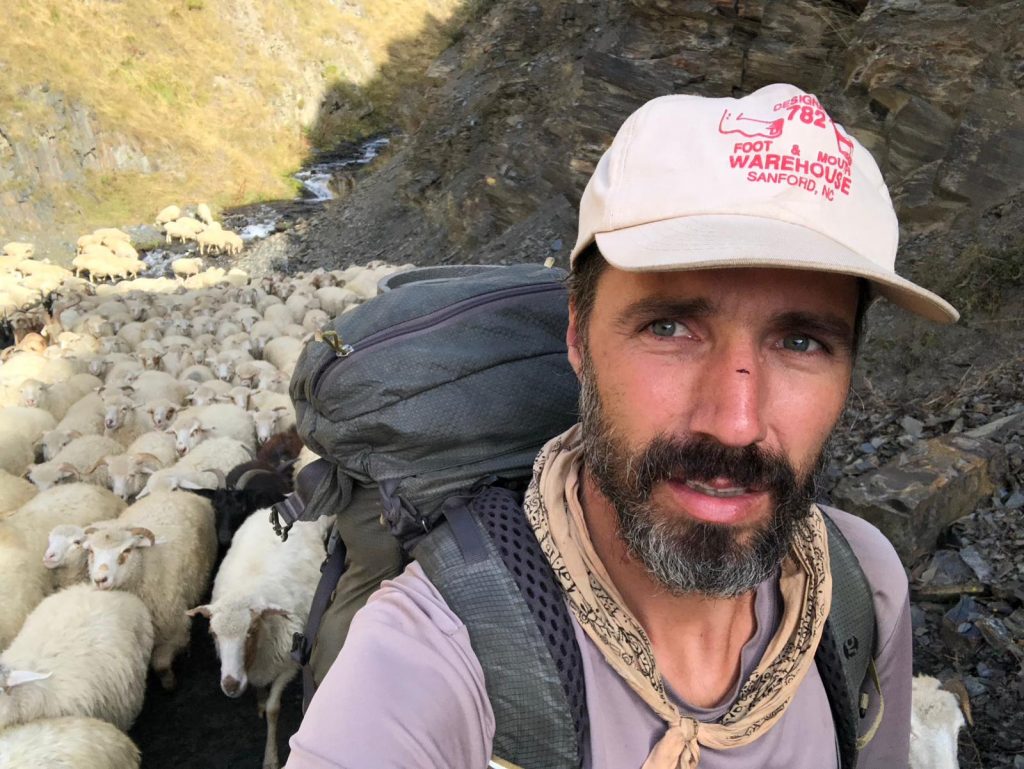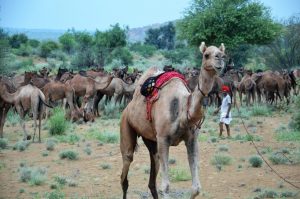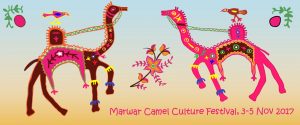 |
Conserving animal biodiversity and creating rural employment can go hand in hand – an Indian NGO is showing the way. Camels are part of the past? Not according to Lokhit Pashu-Palak Sansthan. LPPS is running a project to boost the value of camel products such as milk and ice cream. Camel milk, the “white gold of the desert”, is highly nutritious and is used traditionally to treat tuberculosis and typhoid. According to scientists, it may also have a positive effect on patients with HIV/AIDS, cancer and Alzheimer’s disease. Further details |
 |
Pastoralists and other livestock keepers should have the right to participate in formulating national policies. That was one of the conclusions of a workshop on Pastoralists, Livestock Keepers Rights and Animal Genetic Resources, on 24 to 26 February 2007. Around 100 pastoralists from all over India attended the workshop in Sadri, Rajasthan, along with delegations from Mongolia, Iran and the Philippines. The workshop also demanded official recognition for pastoralists as custodians of animal genetic resources. Their mobile way of life and their traditional rights to use forest lands and other natural resources must be protected, said participants. An international meeting followed immediately after the national workshop. Participants from Bangladesh, China, Germany, India, Iran, Mongolia, Sri Lanka, Sudan, Thailand, the UK and Vietnam, along with the Food and Agriculture Organization of the United Nations, clarified the concept of Livestock Keepers’ Rights. This a bundle of rights and recommendations for strengthening the role of livestock keepers in animal genetic resource management. Issues discussed included:
Report from the two meetings: |
 |
The LIFE Network will host an international workshop on “Livestock Keepers and the Management of Animal Genetic Resources: Roles, Rights, and Responsibilities” in Sadri, Rajasthan, India, on 26-28 February 2007. Registration and accommodation are free, but participants must cover their own expenses. The organizers may be able to provide assistance in certain cases. Further information: The LIFE Network supports community-based conservation of animal genetic resources and seeks to strengthen rural livelihoods through the development of indigenous livestock breeds and species. See www.lifeinitiative.net for more. |
 |
On this year’s Human Rights Day, 10th December, representatives of herding communities from all over India rallied in Delhi to draw attention to their plight and discuss strategies for reviving their customary grazing rights. For hundreds of years these mobile livestock keepers have held together rural life by providing draught animals, milk, meat, wool, manure, and general ecosystem services.
But in the last several decades these diverse and colourful people that include the Raika and Gujjar of Rajasthan, the Maldhari of Gujarat, the Gaddi in Himachal, Bakkarwal in Kashmir, Van Gujjar in Uttaranchal, Changpa in Ladakh, Golla in Orissa, Kuruba in Karnataka, Toda and Konar in Tamil Nadu, and many more, have felt the squeeze of “development” and of generally unsympathetic government policies. The establishment of wildlife sanctuaries and national parks, joint-forest management schemes, allotment of common land for commercial plantation or bio-diesel cultivation, expansion of irrigation agriculture are all developments that have constricted their customary grazing areas. Click here for more. |
 |
LPPS has launched a project to promote camels as a source of income in Rajasthan’s deserts. The project will:
LPPS has opened an office in Jaisalmer to manage this project. Contact: Hanwant Singh Rathore Reviving Rajasthan’s Camel Husbandry is a project of Lokhit Pashu-Palak Sansthan, conducted in cooperation with the League for Pastoral Peoples and Endogenous Livestock Development in the context of the LIFE Network and supported by the Ford Foundation. |


 326 kb
326 kb 131 kb
131 kb


